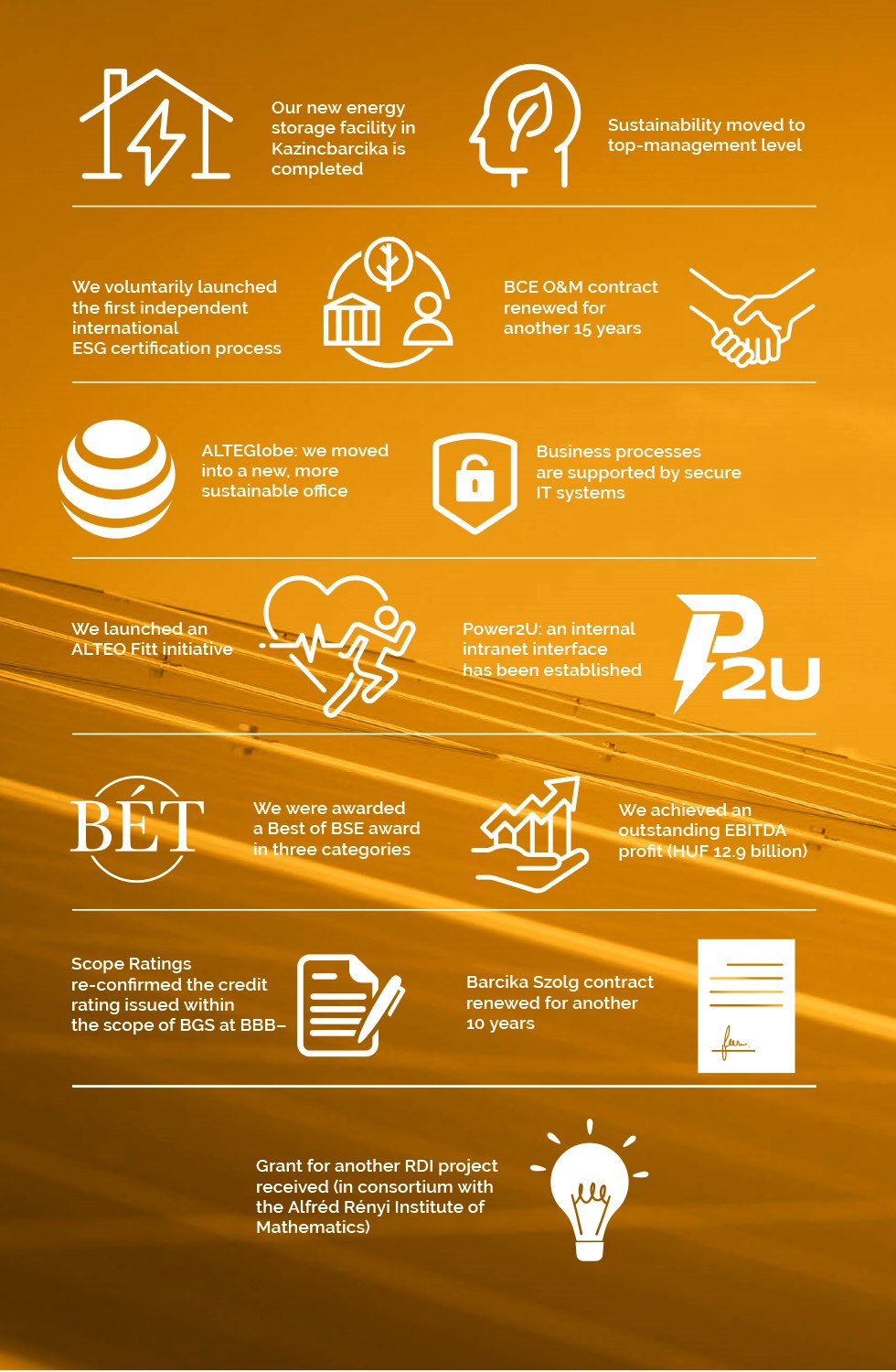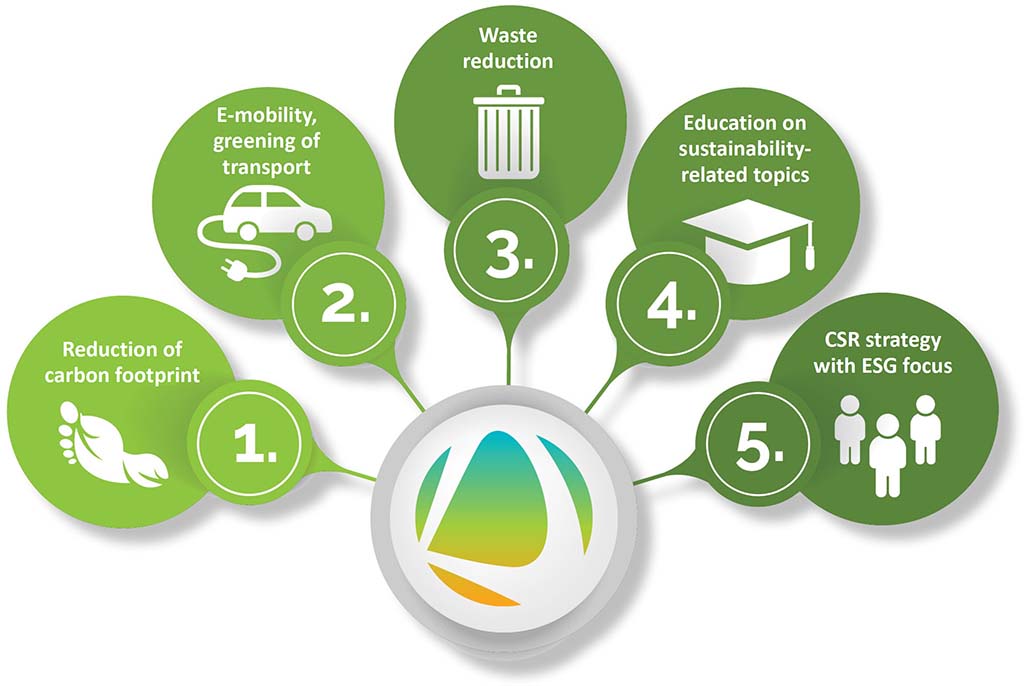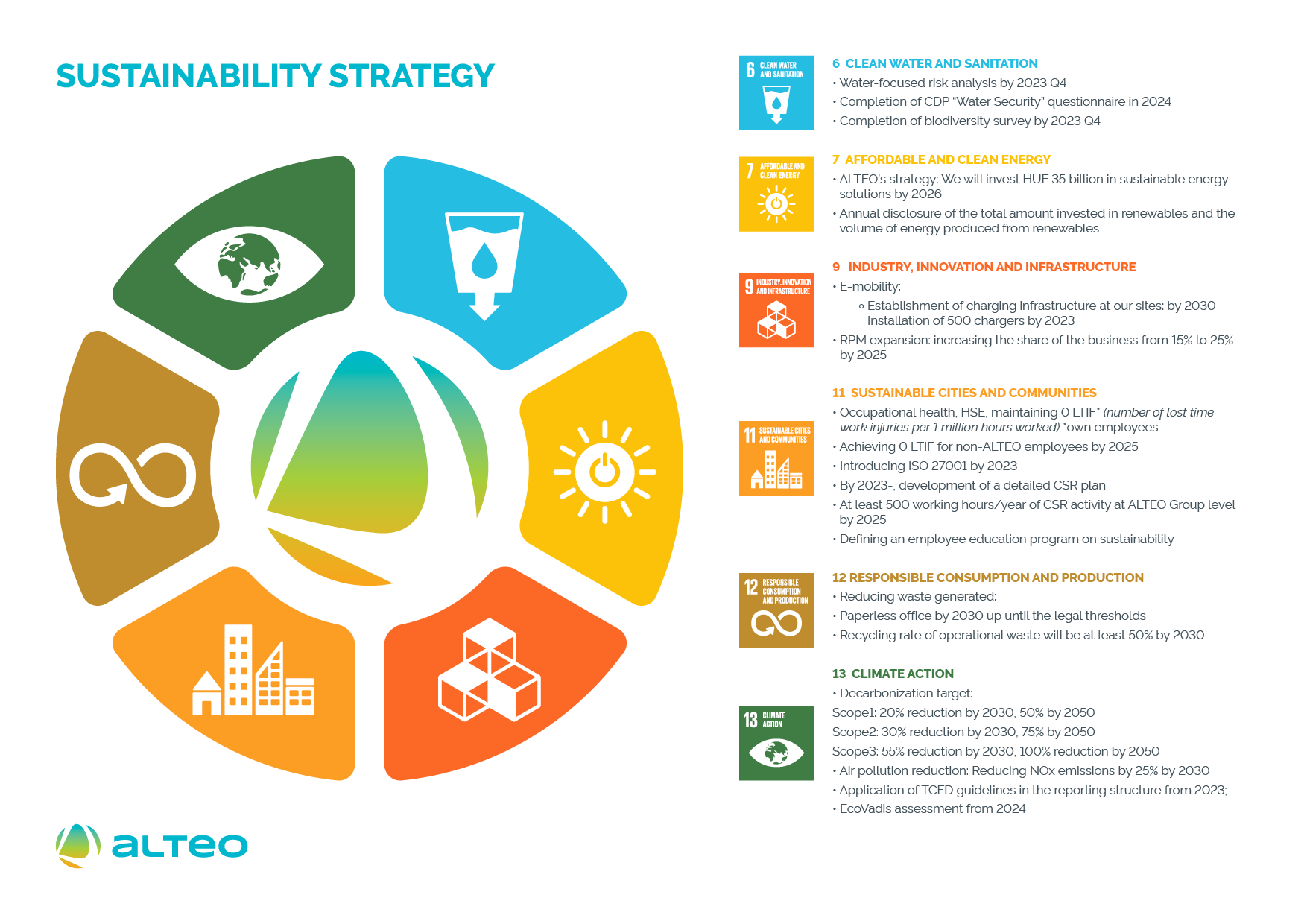In 2022, we became the first company in the Hungarian energy sector to obtain an independent, international ESG certificate.
ESG reporting has become an important issue for ALTEO, with an increasing emphasis on quantified data, results, and targets.
Our sustainability focus areas
Our long-term goal is to become leaders in the domestic market through our deep commitment to ESG and to cooperate with our stakeholders to facilitate change for more sustainable energy production.
The spectrum of ALTEO’s sustainability strategy ranges from clean energy through responsible consumption and production all the way to urgent action against climate change. We present how elements of the strategy relate to the UN Sustainable Development Goals (SDGs).
We have defined our sustainability vision based on the GRI Standards-based materiality assessment, along the UN SDGs. ALTEO has a significant influence on six of these points, which have identified as sustainability objectives as follows:
Clean water and sanitation
The objective of ensuring sustainable water management and access to water and sanitation for all concerns ALTEO through water treatment, hydropower plants, heating power plants (district heating, hot water supply) and waste management. Our plans include a water-focused risk analysis and a biodiversity survey to be completed by the end of 2023.
Clean energy
The objective of making affordable, reliable, sustainable, and modern energy accessible to all is the main goal that concerns ALTEO in the use of renewable energy sources, the expansion of its renewable portfolio and in increasing its energy efficiency. Based on our sustainability strategy, we will invest HUF 35 billion in sustainable energy solutions by 2026, the exact amount of which—as well as the volume of energy generated from renewables—will be disclosed annually.
Industry, innovation, infrastructure
ALTEO is linked to the SDGs aimed at building resilient infrastructures, supporting inclusive, sustainable industrialization, and fostering innovation through R&D&I projects, environmentally friendly technologies and innovation. These are supplemented by requirements we have set for ourselves: installing 500 e chargers by 2023, increasing the share of the RPM business from 15 to 25 percent by 2025, and fully establishing e-charging infrastructure at our sites by 2030.
Sustainable cities and communities
In our case, the objective of making cities and human settlements inclusive, safe, adaptable, resilient, and sustainable takes the form of promoting and supporting environmentally friendly transport, reducing GHG emissions and waste from production. ALTEO’s related ideas primarily concern occupational health and CSR. Within the former, we are striving to keep the number of lost time work injuries per one million hours worked at zero (0 LTIF) for our own employees and to achieve the same for non-ALTEO employees by 2025. In terms of CSR activities, we will develop a detailed CSR plan by the end of 2023, and by 2025 we would like to reach a minimum of 500 working hours spent on CSR per year at group level. This will be accompanied by an employee education program on sustainability issues.
Responsible consumption and production
The objective to promote sustainable consumption and production habits primarily concerns ALTEO’s waste management activities and the implementation of the Green Office Program. In this context, we want to achieve a fully paperless office by 2030 up until the legal thresholds, and a 50% recycling rate of operational waste.
Climate action
This SDG, containing urgent and inevitable measures to combat climate change and its impacts, concerns ALTEO’s sustainability aspirations. In line with our carbon footprint reduction targets, we wish to reduce our direct Scope 1 emissions by at least 20%, our indirect Scope 2 emissions by 30% and our Scope 3 emissions by 55% by 2030. Through our natural gas-based power plants, we offset the volatility of renewables, i.e., we enable the stable operation of the electricity system, integrating more renewables. Our Scope 1 -50%, Scope 2 -75% and Scope 3 -100% emission reduction targets for 2050 are also designed to make the EU net-zero target a realistic vision. In the interest of reducing air pollution, we also want to cut our NOx emissions by at least 25 percent by 2030. Next year, we will report our results using the TCFD voluntary reporting guidelines, which focus on climate change-related financial risks, and our plans for 2024 include achieving EcoVadis, the world’s most trusted business sustainability rating.




